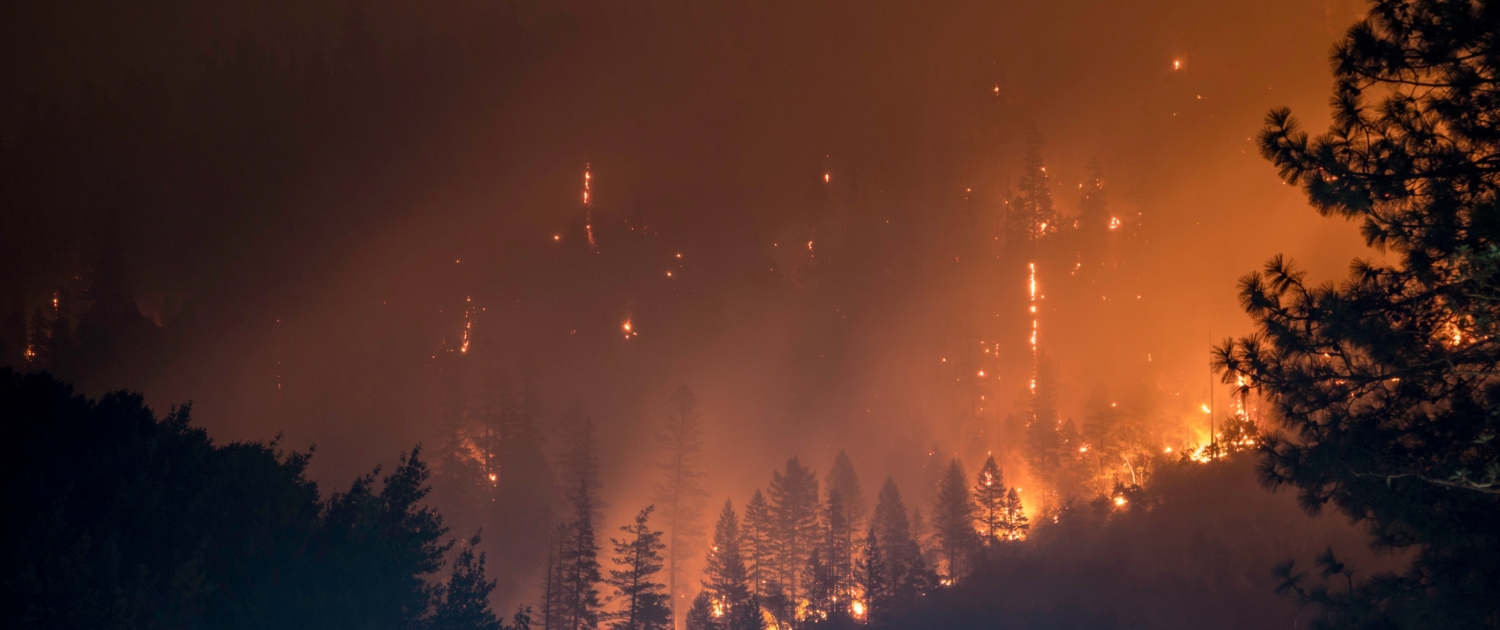Forest Fires
Under a changing climate, warmer and drier conditions are expected to increase the frequency, duration, and intensity of forest fire outbreaks in many parts of Canada especially in the continental interior (Flannigan et al. 2002). Approximately 80% of the over 600 Indigenous communities in Canada (over 480 First Nations) are located in the Boreal region (Boreal Forest Network, 2005). The Indigenous communities of the Boreal Forest rely on this ecosystem for their livelihood, their culture, and their homes. The effects of climate change on forested regions in Canada will affect the livelihoods of the communities who rely on them.
Subsistence or income-generating economies relying on forest products may be at risk because of forest loss due to increased forest fires, insects, and diseases. These economies may also be at risk because of changes in species distribution of vegetation species in the forest. Other possibilities exist where Indigenous communities will benefit from increases in forest productivity due to changes in climate. However, positive impacts on the forest economy will only exist in disturbances from insects, fires, and extreme weather events are minimal in these regions.


